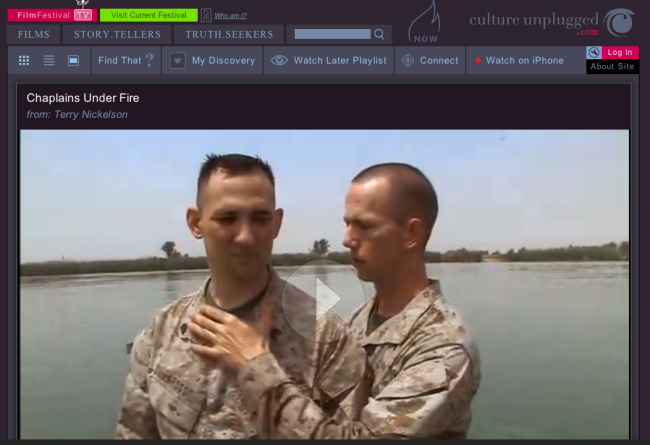According to an Army Times article, a Christian Broadcasting Network report with journalist Chuck Holton, and an interview with the Army chaplain at the center of the story on the Daily Signal, the facts are that
– in conducting a suicide prevention program, an Army chaplain presented various sources of non-religious support and help to troops
– the chaplain shared with the troops that, personally, when he was an infantryman, he had found the Psalms and the story of King David and his Christian faith helpful in overcoming depression
– troops are required to attend such suicide prevention programs
– the handout the chaplain gave troops at the end of the session had a list of non-religious resources on one side; on the other, he had written Psalms from the Old Testament Bible
– the chaplain states that he presented his personal approach as just that, personal, and did not indicate any of the options he outlined were mandatory
– some troops objected to being given, in the handout, religious material at a non-religious, mandatory program
– the Army issued a letter of concern to the chaplain
– “A local letter of concern is not punishment,” according to a statement by Maj. Gen. Scott Miller quoted in the Army Times. “Rather, it is an administrative counseling tool, with no long-term consequences. By design, letters of concerns are temporary, local administrative actions that are removed from a Soldier’s personnel file upon transfer to another assignment.”
– Gen. Miller, the article continues, further stated that “the role of military chaplains is to serve the religious needs of military members of a unit and their families. Their role is not to provide religious instruction during non-religious mandatory training classes. Chaplains may appropriately share their personal experiences, but any religious information given by a Chaplain to a military formation should be limited to an orientation of what religious services and facilities are available and how to contact Chaplains of specific faiths.”
– chaplains, who are both ordained clergy and military officers, are typically in charge of these suicide-prevention briefings
So….
Did this Army chaplain overstep his bounds by sharing his faith as a personal aside in a mandated, non-religious program? Would he have been neglecting his duties as a chaplain endorsed by a Protestant church not to do so? Should he have not addressed the help many find in religion and spirituality at all? Was it okay to address the help many find in religion and spirituality but do so more broadly, encouraging troops of all faiths to turn to their church, mosque, temple, synagogue…? Should the handout have had no references to religion at all? Should he have listed on the back information on how to get in touch with a representative of one’s own faith tradition? Was the Army right to reprimand the chaplain or out of line?….




